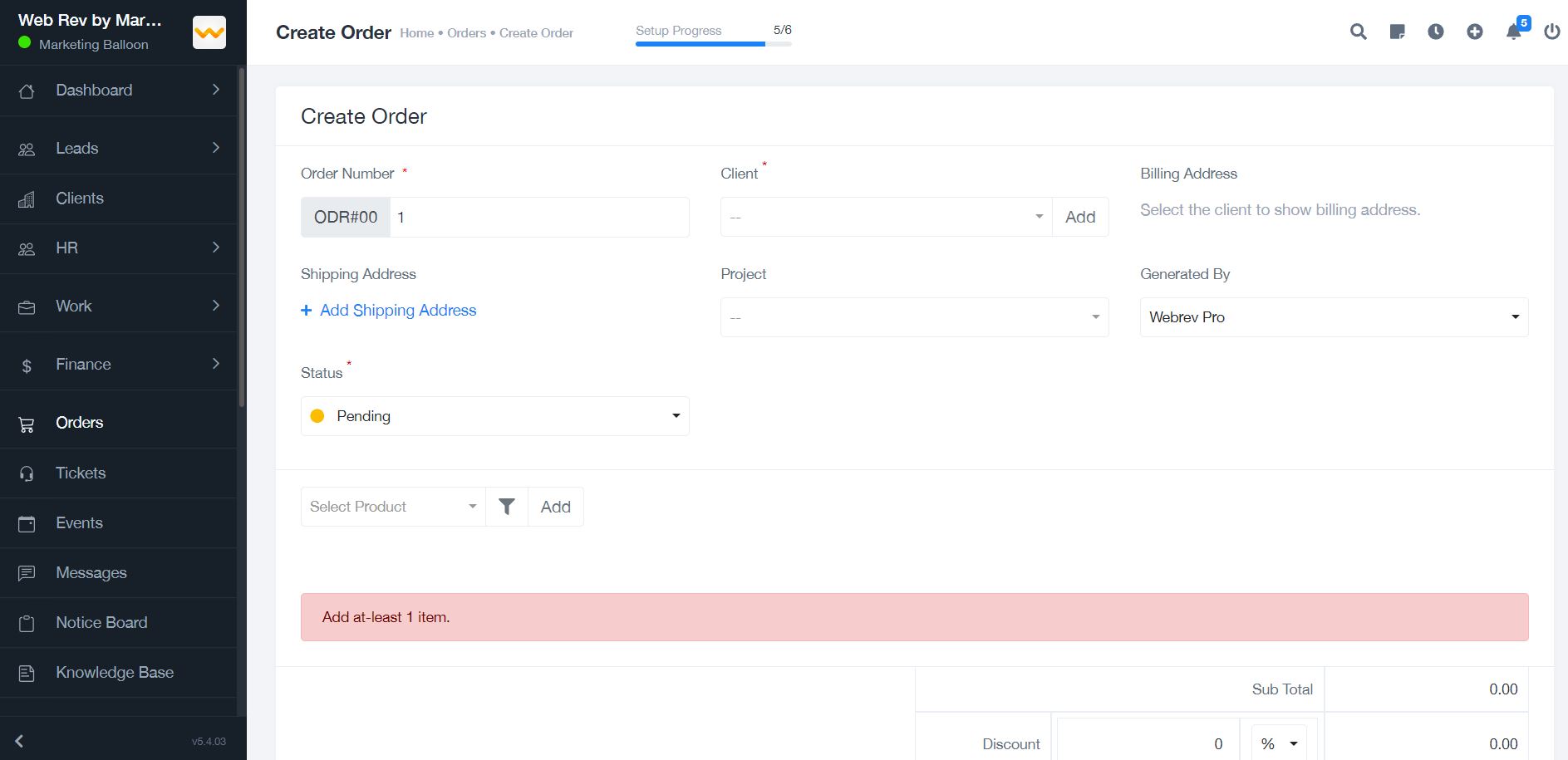Orders Management
Our Order Management Module is a critical component in business management systems, helping companies process, track, and fulfill customer orders efficiently. This module is especially vital for businesses with complex order processing needs, e-commerce platforms, and multi-channel sales. Here's a detailed overview of the key features typically found in a comprehensive Order Management Module:
1. Order Processing
Order processing is at the heart of this module, encompassing the entire lifecycle of an order. This feature provides:
- Order creation and entry, manually or automatically from sales channels
- Order editing, such as changing quantities or shipping addresses
- Order verification and validation to ensure accuracy
- Integration with payment gateways for secure transactions
2. Order Tracking and Status Updates
Keeping track of orders and providing updates to customers is crucial. This feature offers:
- Real-time order tracking throughout the processing and shipping stages
- Automatic notifications for order status changes (e.g., order confirmed, shipped, delivered)
- Customer self-service portals for order tracking
- Integration with third-party shipping carriers for tracking information
3. Inventory Management Integration
A seamless link between order management and inventory management ensures accurate order fulfillment. This feature includes:
- Real-time inventory tracking to prevent overselling
- Automated stock allocation for incoming orders
- Integration with warehouses and fulfillment centers
- Alerts for low stock and automated reordering
4. Multi-Channel Sales Integration
An Order Management Module should handle orders from various sales channels. This feature typically provides:
- Integration with e-commerce platforms, retail stores, and other sales channels
- Automated order import from multiple sources
- Consolidated order views across all sales channels
- Tools for managing sales channel-specific requirements (e.g., Amazon, eBay)
5. Shipping and Fulfillment
Shipping and fulfillment features ensure orders are delivered to customers efficiently. This feature includes:
- Integration with multiple shipping carriers for rate comparisons and label printing
- Automated generation of shipping documents (e.g., packing slips, shipping labels)
- Tools for managing fulfillment workflows (e.g., pick, pack, and ship)
- Integration with third-party fulfillment centers
6. Order Analytics and Reporting
Order analytics help businesses gain insights into order trends and performance. This feature offers:
- Real-time order dashboards with key metrics (e.g., order volume, average order value, etc.)
- Customizable reports for order analysis and forecasting
- Analysis of order processing times and bottlenecks
- Integration with business intelligence tools for advanced order analytics
7. Customer Relationship Management (CRM) Integration
An effective Order Management Module should integrate with CRM systems for seamless customer interactions. This feature includes:
- Access to customer profiles and purchase history during order processing
- Integration with customer communication tools for updates and support
- Tools for managing customer-specific requirements and preferences
- Cross-referencing of orders with CRM data for personalized service
8. Returns and Refunds Management
Handling returns and refunds efficiently is essential for customer satisfaction. This feature provides:
- Automated return and refund processing
- Integration with inventory management for returned goods
- Tools for managing return policies and restocking fees
- Customer communication regarding return status and refunds
9. Integration with Finance and Accounting
An Order Management Module should integrate with finance and accounting systems for accurate financial tracking. This feature includes:
- Automated invoice generation for orders
- Integration with accounting software for revenue recognition
- Tools for tracking order-related expenses and costs
- Financial reconciliation and auditing features
10. Customization and Automation
Customization and automation features help tailor the Order Management Module to specific business needs. This feature offers:
- Customizable order workflows and business rules
- Automated order processing tasks (e.g., order verification, shipping label printing)
- Integration with workflow automation tools
- Custom scripting and extensions for additional functionality
Together, these features create a comprehensive Order Management Module that supports the entire order lifecycle, from order creation to fulfillment and beyond. The seamless integration with other business functions ensures that businesses can manage their orders efficiently, maintain accurate inventory, and provide excellent customer service, leading to higher customer satisfaction and improved business performance.


